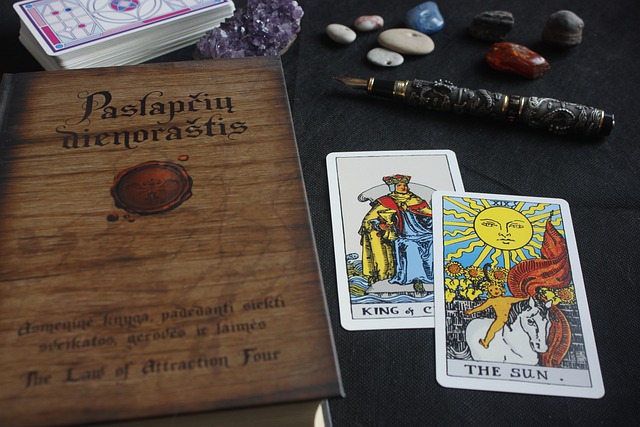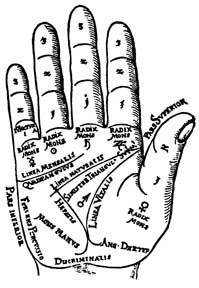
It is an excellent way to gain insight in a situation by using a deck tarot cards. It can help you find answers to your questions and give you direction. It can also help to direct your thoughts and intentions. However, it takes some effort to read your tarot cards.
The first step in reading your own tarot cards is to learn how to use them. You'll want to make sure that you have the right deck to use and that you know what each card represents. You can then practice your readings. To make this easier, you can read the cards together and learn how to interpret them.
A simple three-card spread can be a good place for beginners. It can be used for revealing relationships, to show emotions or dynamics. The spread can be modified to fit the individual being read. Change the cards to highlight your strengths or help in certain situations.

A good book about tarot can also help you learn how to read the cards. A journal can be used to help you remember the meanings of the cards. A journal can help you keep track and monitor your progress. Writing down your thoughts, and the meaning of the cards is a great way to keep track. This will help you remember what you read and how you felt as you read.
A reversal refers to a card appearing in a spread that points to something. You should pay attention to reversals as they could indicate something that needs to change or need to be eliminated. Reversals can also be an indication that something needs to change or that the situation has become cyclical.
To learn how to read your own Tarot card, it is important to take it slow. The cards can be confusing. A deck that you enjoy is a good place to start. You will find it easier to focus on the cards, and their meanings, if you use a spread that you're familiar with. If you're feeling confused, return to the spread you used earlier.
You may be unable to find the deck you want, so you may look online or in your favourite books. It's also possible to create your own spread. A simple spread of three cards can help you learn how to read your cards. A more extensive spread is also available for more detailed analysis.

Practice is the best way of learning how to do it. It takes time and practice before you can master a skill. But once you've learned it, you can give yourself a reading without ever having to refer to a textbook.
FAQ
What does a hobby really cost?
Time is all that's required to make a hobby a success. If you are serious about your hobby it could take years before you achieve your goals.
There is one thing that will help you. It's called "passion." If you are passionate about what you do, it will be easier to work hard and make progress.
You may become addicted to the activity once you have put in enough hours. This is where the real fun begins. Because you're doing something you like and it keeps getting better. You will likely have seen a significant improvement by the end the year.
It doesn't matter how long it takes. Give it a shot. You might just surprise yourself!
What are observation hobbies?
Observation hobbies allow you to observe others doing the same thing. They might include watching sports, reading books, going on holiday, etc. It could also include observing others.
Observation hobbies are great because they help you learn how to think creatively. You can use this knowledge later when you're working on projects for yourself or others.
You'll discover that it's easier to learn if there's a passion for something.
If you're interested in football, for instance, you could watch it or read a book. To learn more about photography, it is possible to visit and take photos.
If you enjoy playing music, you could play along to songs online or buy a guitar.
You could also choose to cook at home or go to restaurants if you are a good cook.
If you love gardening, you might grow vegetables or flowers.
If dancing is something you enjoy, join a dance class.
If you enjoy painting, you might paint pictures.
If you like writing, you could write stories or poems.
If you like drawing, you could draw pictures.
You could work as a caretaker or keeper at a zoo if you are passionate about animals.
If science interests you, you can study biology, chemistry or physics.
If you like history, you could read books, watch films or listen to podcasts.
If you like traveling, you could travel abroad or explore your local area.
What is a good hobby for kids?
A hobby for kids is any activity they like to do as part of their normal daily routine. You might find them interested in drawing, building things, painting, writing stories, playing with toys, listening to music, reading books, watching TV, and playing computer games. They may also like to play soccer, football, basketball, cricket, rugby, baseball, and hockey.
Many parents worry about their children getting into trouble if they have the freedom to do what they want. But this isn't always true. They won't get into trouble if your child is safe and does not cause harm to others or themselves.
It is important to remember that people may not always choose to do what they enjoy. If they don't like writing but love drawing, they might choose to draw images instead.
There are many types of hobbies. It's up to you to choose one that you really enjoy.
Statistics
- This 100% accurate personality-analyzing hobby quiz discovers your passion based on your characteristics. (quizexpo.com)
- I am 100% biologically a woman (discover.hubpages.com)
- Almost 80% of people claim to have no hobby. (hobbylark.com)
- The intensity of the dialogue partners' bond at the end of the forty-five-minute vulnerability interaction was rated as closer than the closest relationship in the lives of 30 percent of similar students. (time.com)
- Much of this decline reflects the fact that teens are less likely to work today than in the past; among employed teens, the amount of time spent working is not much different now than it was around 2005. (pewresearch.org)
External Links
How To
How to learn a music instrument
If you want to learn how to play music, there are many ways to do so. You have the option of going to school, buying a book or taking lessons from someone who plays an instrument. Or, you can watch videos online. These are just a few tips and tricks to help you get started if you're determined to make your own path.
-
Find something that interests and you. If you don't like any of the instruments you see around, then you should try another one. If you don’t enjoy playing an instrument it will be hard for you to get into it.
-
Be patient. Learning anything new takes time. Expect to not be able master all things immediately. Instead, you should continue practicing every day.
-
Practice regularly. You can do this even when it is hard. This will ensure that your memory doesn't fade.
-
Find a quiet place to practice. It is best to find a quiet space where you will not disturb others. Also, make sure that there aren't too many distractions. Also, don't let loud music play near your home.
-
Have fun. Music should be enjoyed. You should have fun practicing music. You will be motivated to do more if you have fun.
-
Set goals. When you set goals, you know exactly what you have to achieve. There is no excuse for failure.
-
Keep track of your progress. Notate all of your achievements and failures. It will help you become a better person over time.
-
Take breaks. Sometimes all it takes is to take a breather. You will be able to take breaks and think about the things you are doing.
-
Ask questions. Ask for help if you are unsure or have questions about certain aspects of the instrument. They might be able to assist you.
-
Learn by listening. Musicians often listen to music they like and try to imitate it. This allows them to understand the basic ideas behind the song.
-
Read books. Read books to learn more than just watching videos or learning from classes. Books often contain information you can't find elsewhere.
-
Join a group. Playing with other people will make you more practice. Plus, it will be easier to meet people with similar interests.
-
Watch tutorials. Tutorials are short videos that give detailed information on a topic. These videos typically focus on one aspect of the instrument. These tutorials will help you to understand the more difficult parts.
-
You can try different methods. Some people prefer to learn through lectures. Others prefer to read. Try different methods until you find the one that works for you.
-
Practice makes perfect. It is not possible to become an expert overnight. You must work hard to become proficient enough to do well.
-
Begin a group of musicians. You can learn faster by listening to other musicians play your favorite songs.